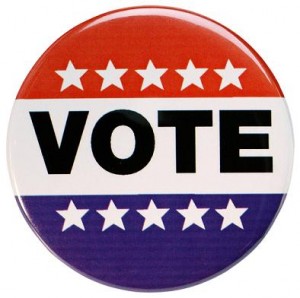 The 2012 presidential candidates will spend billions of dollars to encourage people to vote for them this year. Independent analysts currently estimate that President Barack Obama and Republican nominee Mitt Romney will spend more than $6 billion in their campaigns. But how do they really know that money will bring them votes?
The 2012 presidential candidates will spend billions of dollars to encourage people to vote for them this year. Independent analysts currently estimate that President Barack Obama and Republican nominee Mitt Romney will spend more than $6 billion in their campaigns. But how do they really know that money will bring them votes?
It turns out there is an emerging cadre of researchers using scientific techniques – specifically the randomized controlled trial – to find out which campaign strategies actually bring people to the polls.
Among them are Todd Rogers, a behavioral psychologist at Harvard University, and David Nickerson, a political science professor at the University of Notre Dame. Together, they conducted a study in the 2008 Democratic primary in Pennsylvania that attempted to determine whether get-out-the-vote reminder calls made a significant difference in voter turnout.
For the study, Rogers came up with some questions that would ask people about their plans on voting day such as “What do you think you’ll be doing before you head to the polls on Tuesday?” and “Where do you think you’ll be coming from that day?” His theory – based cognitive psychology principles – was that these questions would plant a seed voters’ minds to helps them remember to vote.
The researchers used the questions in a randomized controlled trial. Some citizens received phone calls asking the questions, others received the standard get-out-the-vote call and others did not receive a phone call. They found a dramatic result: People who were asked the planning questions were twice as likely to vote as people who were not.
There are other examples of scientific studies applied to campaign strategies. Rogers and a colleague at Yale University found evidence that messages which tell people high turnout is expected are more effective at motivating voters than messages which emphasize low voter turnout.
And a review of field studies in get-out-the-vote campaigns found that many of these strategies improve voter turnout, but tend to mobilize well-represented groups of people and miss under-represented groups – effectively widening disparities in the electorate.
Here at EBL, we think it is great news that social scientists are applying scientific methods to the art of political campaigning – especially where so much money is involved. And we hope it’s information that candidates use in their campaigns.



[…] a growing group of researchers applying social science to issues effecting political campaigns. (We’ve written about his work on get-out-the-vote phone calls.) He wanted to address the issue of how candidates respond when get asked a question that they […]